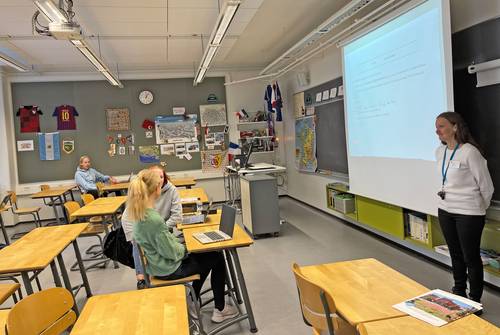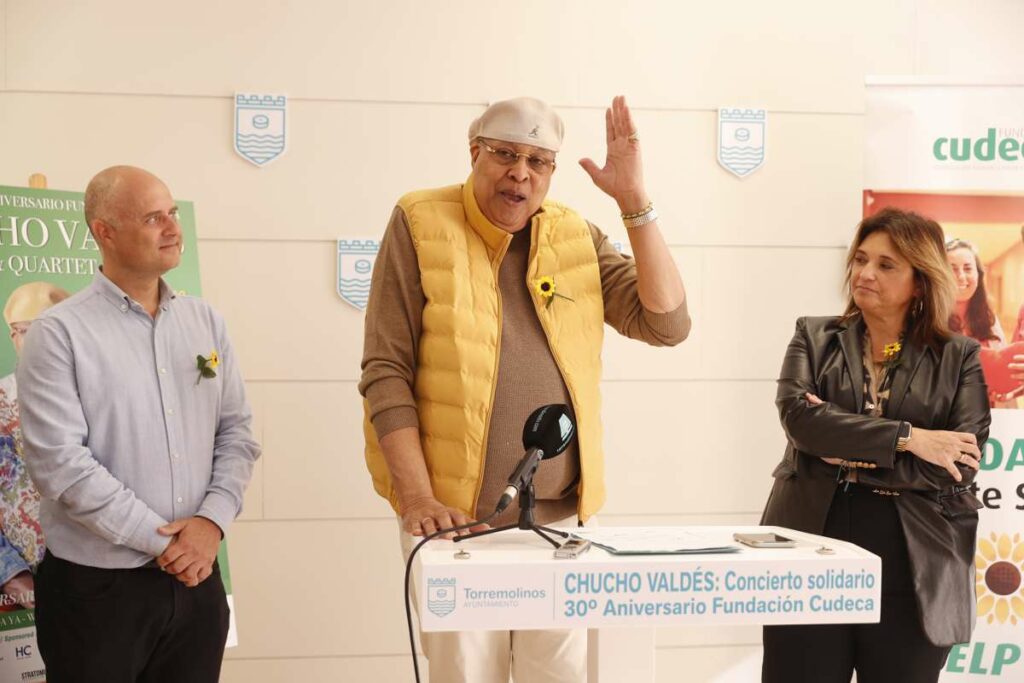Finland includes migrants in its commitment to quality education for all
▲ The government will support all young people with free education up to the age of 20 so that they can acquire the skills both for their working life and to continue learning throughout life. In the image, school in Helsinki.Photo the day
Laura Poy Solano
sent
Newspaper La Jornada
Monday, November 14, 2022, p. 12
Helsinki. Finland’s successful education system is beginning to feel pressure from rising immigration, which represents 6.3 percent of the population, rising poverty, and accelerated aging.
Two decades ago, the Nordic nation gained worldwide recognition for promoting one of the most advanced educational systems, with 91 percent of its adult population having a baccalaureate and four out of 10 with a university degree, but at the same time facing the growing challenges of inequality.
In a country with few inhabitants (5.5 million), we cannot leave anyone behind
says Anita Lehikoinen, Permanent Secretary of the Finnish Ministry of Education and Culture.
The most recent Educational Policy Report, issued in 2021, foresees among other goals that by 2030 at least 50 percent of the population between the ages of 25 and 34 have a university degree and that 4 percent of the gross domestic product (GDP) will be used for research and development.
He acknowledges that it is still difficult for Finns to understand that, after occupying the first places in the Program for International Student Assessment (PISA), which the Organization for Economic Cooperation and Development applies every three years to their member states, their results are down since 2009, mainly in arithmetic and reading.
Despite this, Finland is determined to bet on free, quality education for all in a context of growing economic uncertainty, while still seeking to overcome the effects of the covid-19 pandemic and the impacts of the war between neighboring Russia and Ukraine.
The educational transformation that is being promoted in this Nordic country, where 75 percent of its extension is forested and only 8 percent of its land is arable, includes strengthening the general level of education, investing in the development of basic skills, among them reading and mathematics, as well as guaranteeing equal access to education and culture, particularly for immigrant children and adolescents, since it is estimated that one in 10 minors in Finland has a foreign background, that is, close to 115 thousand .
Lehikoinen stresses that another of the achievements is that compulsory schooling for the population was extended up to the age of 18 and the government will support all young people with free education up to the age of 20, so that they can acquire the skills for both their lives work as well as to continue training throughout life.
This proposal, he says, represents a great investment in education. In 2023, the country plans to allocate 7.6 billion euros to the sector, which includes culture, science and sports. In addition, the government seeks to ensure that the learning gap between the native school population and immigrant students decreases, since today the difference is up to two years of schooling.
The official from the Ministry of Education and Culture underlines the axes of her educational model: focus on student learning; do not apply national tests or ranking lists by schools; not establish rigid inspection systems and maintain a strong participation of municipalities and schools.
Undoubtedly, the central pillar is excellence in the training of its teachers. According to official data, less than 15 percent of applicants to train as educators manage to enter. The best are chosen and must earn a master’s degree before graduating
says Jari Lavonen, professor-researcher and director of the Department of Education at the University of Helsinki.
An expert in teacher training, Lavonen highlights that in Finland “free and quality education is offered, in which books, school meals and medical care are free, with an equity approach.
We have a training model in which basic education begins at the age of seven, there are short school days and practically no homework. It is committed to a system in which the teacher works with full autonomy in his classroom
.
Trust in teachers
At the Viikki Teacher Training School of the University of Helsinki, where students attend from basic to upper secondary level, Mauro, 17, a second-year high school student, believes that the key it is feeling good at school, not being evaluated by the result, but by the effort to achieve it
.
Of his teachers, he notes: What I like the most is that they are one of us. They are not people far away in front of the class talking. I know them personally and I think that relationship is the most important thing. You like learning much more, listening to someone you know and not just someone who stands in front of you and talks to you about her subject. that makes the difference
.
Dr. Erja Schunk, professor-researcher and coordinator of International Relations at Viikki, points out that the great autonomy with which teachers work in her country is not only the result of excellence in the training of their teachers, also of our culture, because the teaching profession is still highly valued in society
.














